SUMMARY
This is AI generated summarization, which may have errors. For context, always refer to the full article.
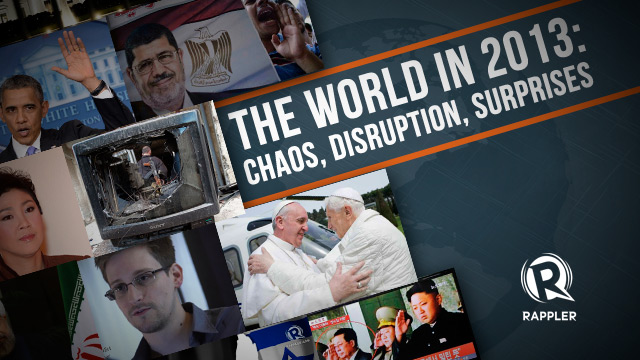
MANILA, Philippines – To say 2013 was eventful for the world would be an understatement. It was a mad year.
Secrets were exposed, traditional power centers were threatened, and there seemed to be a reordering of the global pecking order.
Here are some of the top international stories that shaped the year.
Syria’s suffering continues
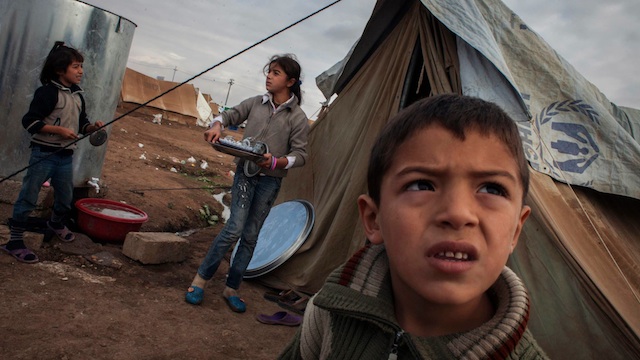
The crisis in Syria entered its third year in 2013, and there seems to be no end in sight.
Throughout the year, Syrian government forces battled it out with rebel forces, as the fighting and violence escalated across the country.
Then came the August chemical attack on civilians just outside Damascus. The attack, allegedly by Syrian government forces, was widely condemned. The images of dozens upon dozens of dead civilians lying on the floor of a makeshift morgue led to the eventual destruction of the country’s chemical weapons stockpile – but not without some diplomatic wrangling between the West and Syria’s ally Russia.
The destruction of the chemical weapons stockpile did little to improve the situation inside the country. Fighting and violence continued, with the suffering of millions of hapless civilians as its backdrop. The humanitarian crisis is staggering: the United Nations has estimated at least 2 million people have fled their homeland, and millions more internally displaced. Disease, malnutrition, and trauma haunt Syrian refugees daily.
Will the coming year see an end to this war? Signs point to a “no,” with attempts at bringing the belligerent sides to the negotiating table still failing.
Mighty China
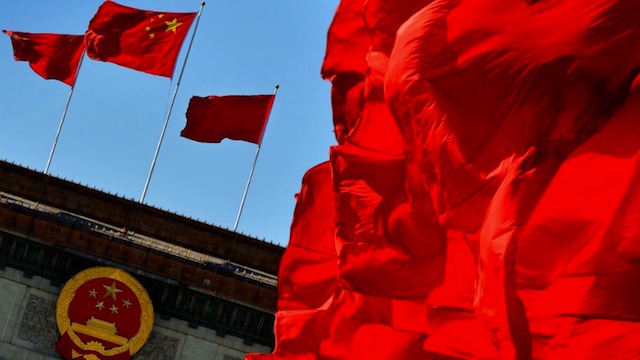
With a new set of leaders, the world’s emerging superpower flexed its muscles in 2013 – and ruffled a lot of feathers along the way.
For starters, China’s territorial disputes with its neighbors such as Japan, Vietnam, and the Philippines ratcheted up. As its economic and diplomatic influence grew, the country asserted its territorial claims, mainly over the South and East China Seas. The country made pointed statements; beefed up its military capabilities and used it to taunt rivals; extended its air defense zone; and even snubbed a president.
Internally, unrest simmered. Corruption among top party leaders continued to be a growing issue, with citizens becoming more wary of the excesses of officials at all levels. The case of disgraced party leader Bo Xilai highlighted this dilemma, and his trial mid-year was widely watched by Chinese and foreigners alike. Another big headache for China’s leaders was the unrest in faraway Xinjiang, highlighted by a suicide attack at the nation’s symbolic heart, Tiananmen Square.
Despite these internal and external troubles, China continued its diplomatic charm offensive, in an effort to polish its image as a benevolent giant. China worked on increasing economic, political, and even security ties. The most notable diplomatic move the country achieved was stepping into the void left by the domestically-troubled United States in two major regional summits: the APEC and the ASEAN.
Secrets uncovered
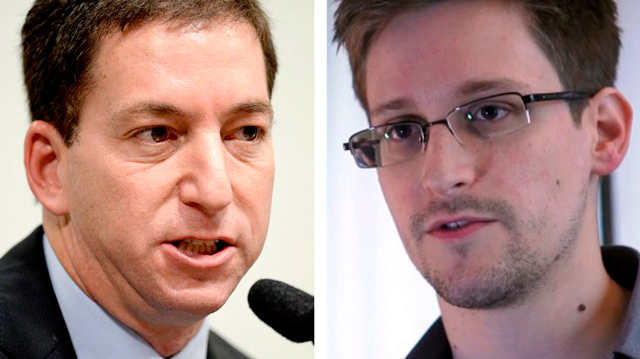
Edward Snowden, a former contractor for the US National Security Agency (NSA), dropped an unexpected bombshell mid-year when he revealed the widespread spying programs of the United States government.
With the help of journalist Glenn Greenwald and by the infamous whistleblowing website Wikileaks, Snowden, little by little, exposed the breadth and depth of the NSA’s spying, not just on home soil but across the globe. His revelation angered not only Americans, but also people outside America’s borders: long-standing enemies, close allies, economic rivals, and ordinary citizens who were all caught in the net of one of the largest surveillance programs ever uncovered.
On the sidelines, WikiLeaks continued its work, despite founder Julian Assange’s continued stay at the Ecuadoran embassy in London, and the sentencing of former soldier Bradley – now Chelsea – Manning to 35 years for the security breach.
Snowden, who is now in exile in Russia, continues to work with Greenwald and other supporters in slowly exposing more of America’s secret spying programs; the unraveling will surely continue in 2014.
Crazy year for the US
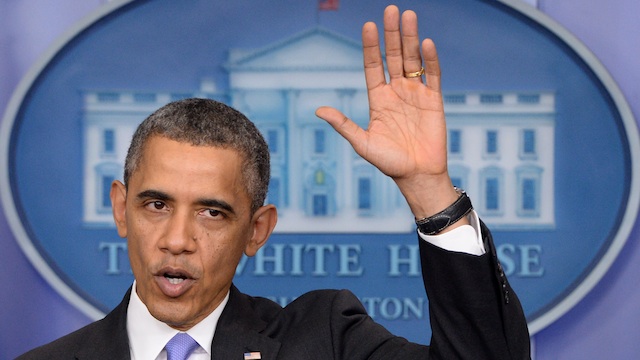
It was a crazy year for the United States of America.
2013 marked the start of Barack Obama’s second term in office, but even before he was even sworn in he had to deal with big headaches. Congress bickered over the fiscal cliff, and the issue of gun control again topped the headlines after the Newtown shooting in December 2012. He then had to deal with major change in the Cabinet, particularly Hillary Clinton’s resignation as his top diplomat, and with a sluggish economy.
Then there was the shutdown. A deeply divided Congress failed to pass a budget bill, which led to a shutdown of the US federal government. Federal facilities and offices across the country were closed, and civil servants had unpaid furloughs for 16 days, from October 1 to 16. In the end, the Democrats and Republicans reached a compromise on the budget – but the damage has been done.
Connected to this was the debacle over the highly controversial Affordable Care Act, which aimed for universal health care for Americans. But what made the ACA, or derisively called Obamacare, one of the “highlights” of the year was its website. Despite all assurances that the website Healthcare.gov – where Americans are supposed to go to enroll for health care plans – would work, it failed miserably. Even the President had to apologize for its (numerous) shortcomings.
Outside its borders, the supremacy of the world’s lone superpower was challenged. As domestic problems forced the US to pull back from the global stage, it left room for other countries to try to fill the gap – with varying degrees of success. It was not only China; there was Russia, on the issue of Syria; and France, also on the Syria issue, but also in its work in conflict-riddled Mali and Central Africa, to name some. It also had diplomatic issues with countries such as Brazil, Mexico, and India, stemming from issues ranging from the Snowden leaks to an arrested diplomat.
Despite all these, Obama shrugged off suggestions that 2013 had been his worst year in office. Before jetting off to his Hawaii holiday, he said that “we have had ups and we have had downs” throughout his five years in the White House. “I think this room has probably recorded at least 15 near-death experiences,” Obama said when asked if 2013 was his worst year.
With surveys showing voter approval of him at below 50% in some of the lowest marks of his presidency, Obama said: “If you’re measuring this by polls, my polls have gone up and down all throughout the course of my career. I mean, if I was interested in polling, I wouldn’t have run for president.”
Chaos and unrest
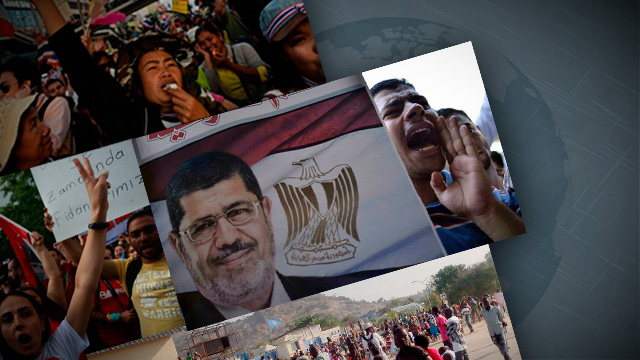
One recurring “theme” of 2013 was unrest. We saw it in Egypt, when Mohamed Morsi was removed from office by another wave of protests reminiscent of 2011. It continued as Morsi’s supporters tried to defend their fallen leader – who was elected into office in the first polls since the fall of Hosni Mubarak – and was met by violence by state forces.
We also saw it in Turkey and Brazil, where seemingly small issues – a redevelopment plan for a park in Turkey and transport fare increases in Brazil – lit the fuse for big, violent face-offs between state forces and protesters. Ukraine also saw political turmoil, after the country’s pro-Russia leader refused to sign an economic pact with the European Union, raising fears of the country cozying closer with its former Soviet past.
Thailand, meanwhile, continued to deal with its own messy politics. Violent protests flared in the capital Bangkok, as anti-government groups continued their fight to kick Yingluck Shinawatra’s government out of office. Yingluck has called February elections in the hope of bringing an end to the rallies, which have drawn tens of thousands of people calling on her to step down. The protesters, however, have vowed to block the February 2 vote, saying it will only return the Shinawatra clan – including her brother Thaksin, currently in exile in the Middle East – to power.
Several other African nations also saw their countries’ foundations shaken by strife and chaos. The Central African Republic, predominantly Christian, saw a coup led by Muslim rebels in March, and fighting has been spreading across the country between Christians and Muslims as a result. South Sudan – the world’s youngest nation – is at the edge of a civil war. The conflict, fueled by an old rivalry between President Salva Kiir and former vice president Riek Machar, has fanned ethnic differences between Kiir’s Dinka group and Machar’s Nuer clan in the country. World powers have called on both sides to start talks. In both CAR and South Sudan, the human cost of the conflicts are rising – and major global players have started intervening.
Out of left field
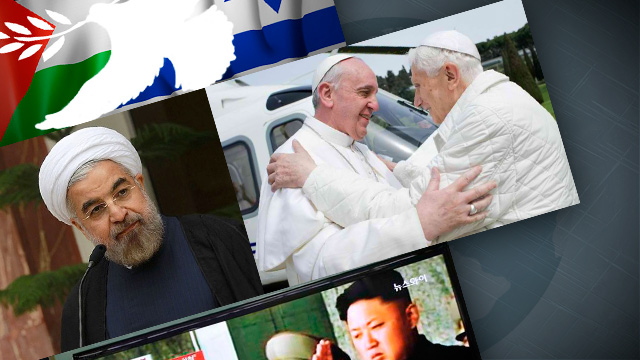
Change is the norm every year, but 2013 was remarkable for big surprises.
Iran went moderate at the polling booth, electing Hassan Rouhani, and within months the country opened up to the West – a huge development, considering the hardline stance of the previous leader, Mahmoud Ahmadinejad. Iran faced western leaders at the UN, restarted nuclear talks, and – to the horror of the hardliners – saw their president talking over the phone with the Devil himself, the US president.
In another area of the mideast, peace talks between the Israelis and Palestinians got back on track, with the US brokering talks. However, issues such as Israeli settlements on the West Bank continue to hound the process, but at least the two sides have returned – albeit briefly – to the negotiating table.
Pope Benedict XVI also surprised everyone by stepping down as the Roman Catholic Church’s top man, the first papal resignation in centuries. He was succeeded by Jorge Mario Bergoglio, who took on the name Francis – the first Pope from the Western Hemisphere.
In a short span of time, Francis has made a lot of unexpected moves, from deciding to live in simpler quarters, to his statements on homosexuals and atheists. Observers have said Francis has reinvigorated what many see as an archaic, stodgy, and close-minded Church. With his papacy just starting, more surprises from the first Jesuit pope surely lie ahead.
And then there’s North Korea. It was not a surprise for the pariah state to act crazy: there were increasing tensions with the South and the West following its December 2012 “missile launch;” the regular chest-thumping statements trying to provoke its enemies; the closure, then reopening, of the Kaesong complex; and its restarting of its Yongbyon nuclear plant. But the outside world was left wondering after Kim Jong-un ordered the purge of his uncle and mentor, Jang Sung-taek, who is also one of the North’s top officials. Why little Kim ordered the purge will remain a mystery to the outside world for some time.
Now, on to 2014. – With reports from Agence France-Presse/Rappler.com
Graphics by Mara Mercado; Images courtesy Agence France-Presse, EPA, ShutterStock
Add a comment
How does this make you feel?
There are no comments yet. Add your comment to start the conversation.